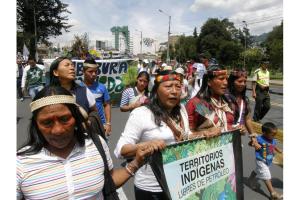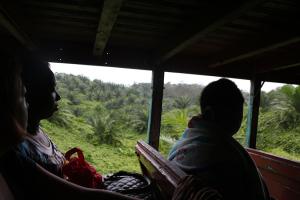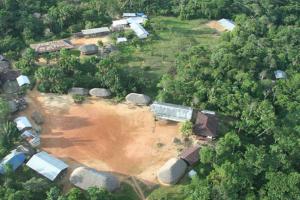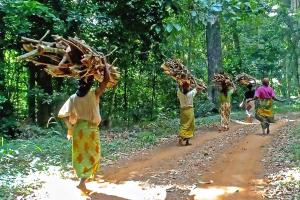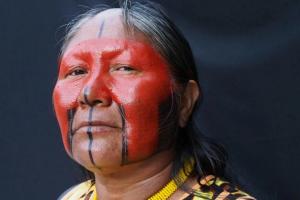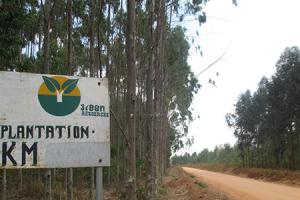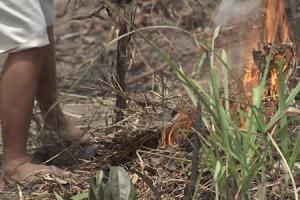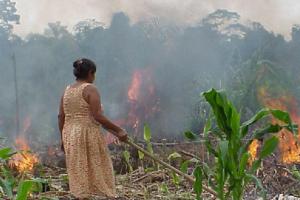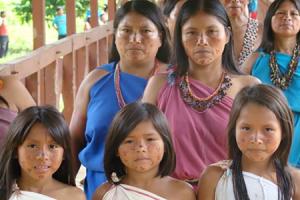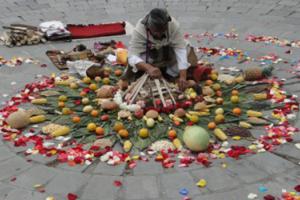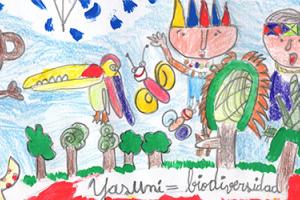Seeds of Hope
“What are the solutions to forest destruction?” “What are the alternatives?” Questions like these are often raised to squash possible debate that could lead to real solutions to deforestation and climate chaos. The way forward starts with ending the assault on forest peoples and their ways of life, and learning about their relationships with their territories. For generations, forest-dependent communities have lived in and with forests, and have protected them.
Communities resisting the impunity and impacts of oil palm growers in Ecuador: Cases from Esmeraldas
Most governments, NGOs and corporations are promoting more Protected Areas and conservation areas around the world. But what does conservation mean? Marlon Santi of the Kichwa people of Sarayaku explains to us what the Amazonian peoples of Ecuador consider to be conservation.
Plantation companies often argue that local populations are destroying the forests, particularly where people depend on firewood and/or charcoal for their energy needs. Thus, they argue, industrial plantations can “sustainably” provide this wood. But this is simply not true.
At first glance, the Nzivi village is a village as many others in the area. But a big difference is that it does not allow investors for large-scale activities, such as monoculture tree plantations. Green Resources is the main private plantation company active in Tanzania. (Available in Swahili).
Forest peoples’ knowledge and practices of the use and management of controlled fire in forests have been identified within climate change policies as the cause of forest fires. Nevertheless, fire is critical for ensuring the food and cultural sovereignty of forest peoples.
Fires in the Amazon are occurring more frequently and with greater intensity. But who is really burning the forests?
